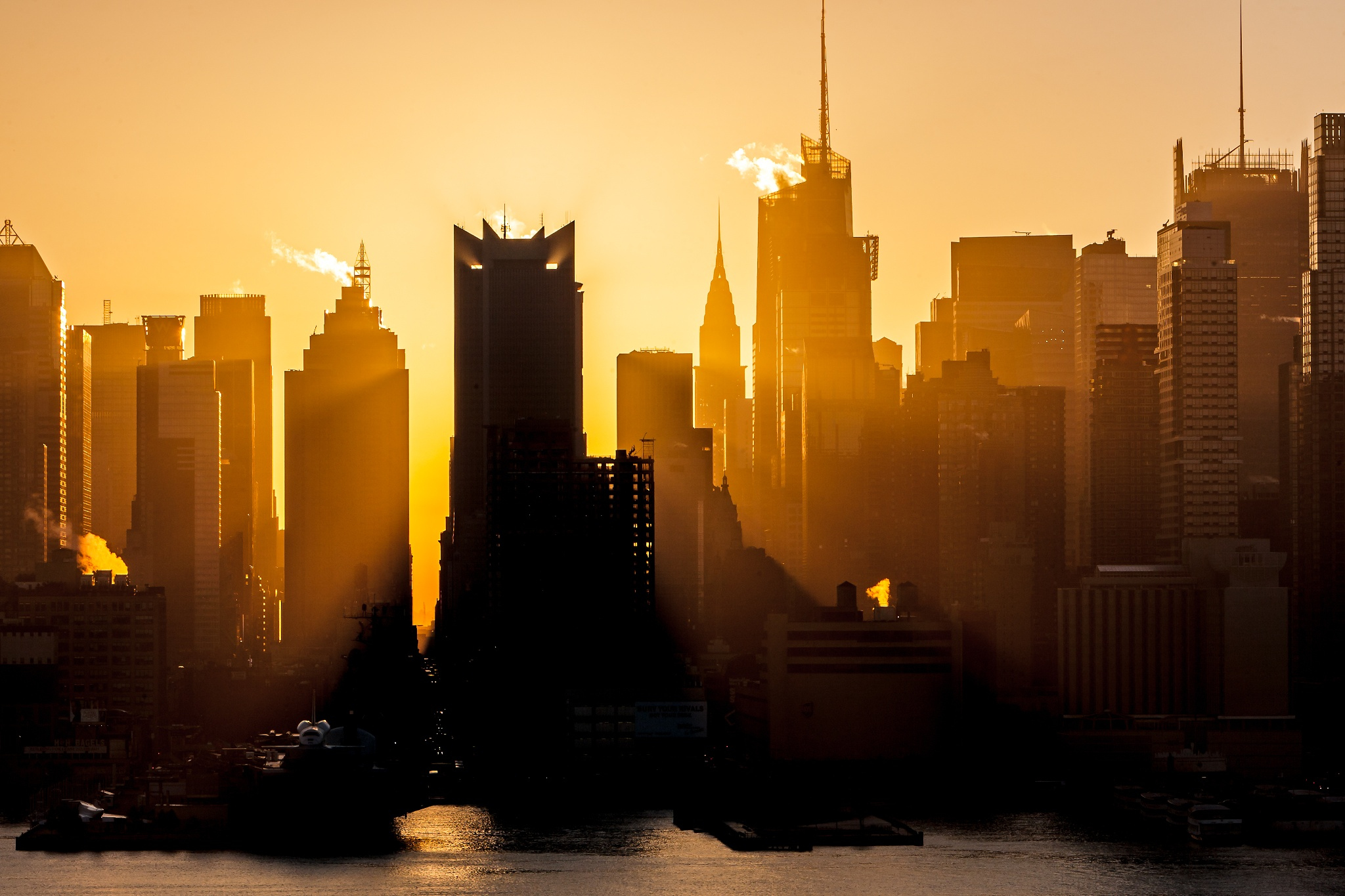When my alarm rang at 6:00 A.M. Wednesday morning April 8, every bone in my body started talking to me – and not one of them was saying anything polite. I had spent the last two days on my feet cooking around the clock and I was beat. All I wanted to do was sleep. But some nebulous form swam into my mind’s eye, wagging an imaginary finger of reprimand at me, “Wake up! We’ve done Bedikat Chometz. It’s tomorrow! Birchat Hachama, remember?! Get spiritual, girl! Get up!” The nebulous figure started taking shape. It looked like a noodle. Very Chometz-like. I got up.
Herding the family out the door, I sang Modeh Ani with my five year old in the elevator on the way down. We were assembling outside on the corner of Grand Street and the F.D.R. Drive in Manhattan to greet the sun with our local Rabbis and community, and I was worried that we would be late. I imagined coming out in darkness, but it already seemed quite light. The eternal traffic of the F.D.R. Drive swished by, its sounds made harsh by the early morning light. A throng of about 300 had already gathered and more were streaming towards us as we turned the corner of Grand and stood on the service road of the F.D.R. Drive, facing east. Above us stretched the Williamsburg Bridge, gray and formal, its soft drape of evening lights already turned off for the day.
We all stood around waiting for a few moments and I wondered when the action would begin. The crowd had swelled to about 400 by now and I looked around for clues. Most faces were recognizable – family, friends, Rabbis. The men looked purposeful, the women looked tired and the young people were grinning. We spilled over into the street and tried to stay clear of the cars that were trying to get by, drivers staring at us pensively. Driving in Manhattan is always fraught with random dangers, one of which is indiscriminate road closures for odd ethnic gatherings. You could almost see the drivers’ brows wrinkling as they passed us, “Oh no! A parade of black hats! Does this mean they’re closing off First Avenue?”
Behind the Bridge and across the East River, the old Domino Sugar factory started to glow. The sun was coming up right behind it, getting stronger. There was a stir and buzz from the area where the Rabbis were standing and we all took it to mean that it was time. I picked up my young daughter and held her above the crowd, pointing to the light. “Look. Boruch Ata…”
It was beautiful and holy watching the sun rise and proclaiming our belief in God’s greatness. It was fitting to seal the moment with one simple, potent blessing of praise. Twenty eight years is a strange amount of time. It’s long enough to lead one to introspection, but not long enough to think of as history. I had never seen the sun rise for Birchat Hachama before. On the completion of its last cycle, I had been a young adult, too immature to know enough to wake up early. And now I’m middle aged. How did that happen? By the time the next cycle is completed the little girl I’m standing with, will herself be almost middle aged.
I looked around at all my neighbors and wondered, where would we all be twenty eight years from now? That’s a little scary. I started thinking backward, going the other way now. What about the cycle that fell before my lifetime? Twenty eight years and another twenty eight. During that point in our history, Jews were assembling in more frightening kinds of lines and groups. Millions of our ancestors stood on the bloody earth of Europe, grateful to be alive to witness any sunrise.
The bright disc of the sun slid out from behind the factory building, surprising me with its intensity. I heard someone saying a Kaddish and soon people started quietly slipping away. The men went straight to synagogue for morning prayers and the women and children wandered home. We’d get an early start today, in ushering Pesach into our homes. Walking back into our building I found myself tired but grateful to have had the opportunity to say this unique bracha. Holding my daughter’s little hand I prayed that she would next say this special blessing holding her own daughter’s hand and standing, not on the F.D.R. Drive but on the cobblestones of a rebuilt Jerusalem. May the next twenty-eight bring only good to our whole nation.
Baila Rosenbaum is a freelance writer and editor living in Manhattan. Her work has been published by Targum Press, Judaica Press, in Mishpacha Magazine and Horizons.
